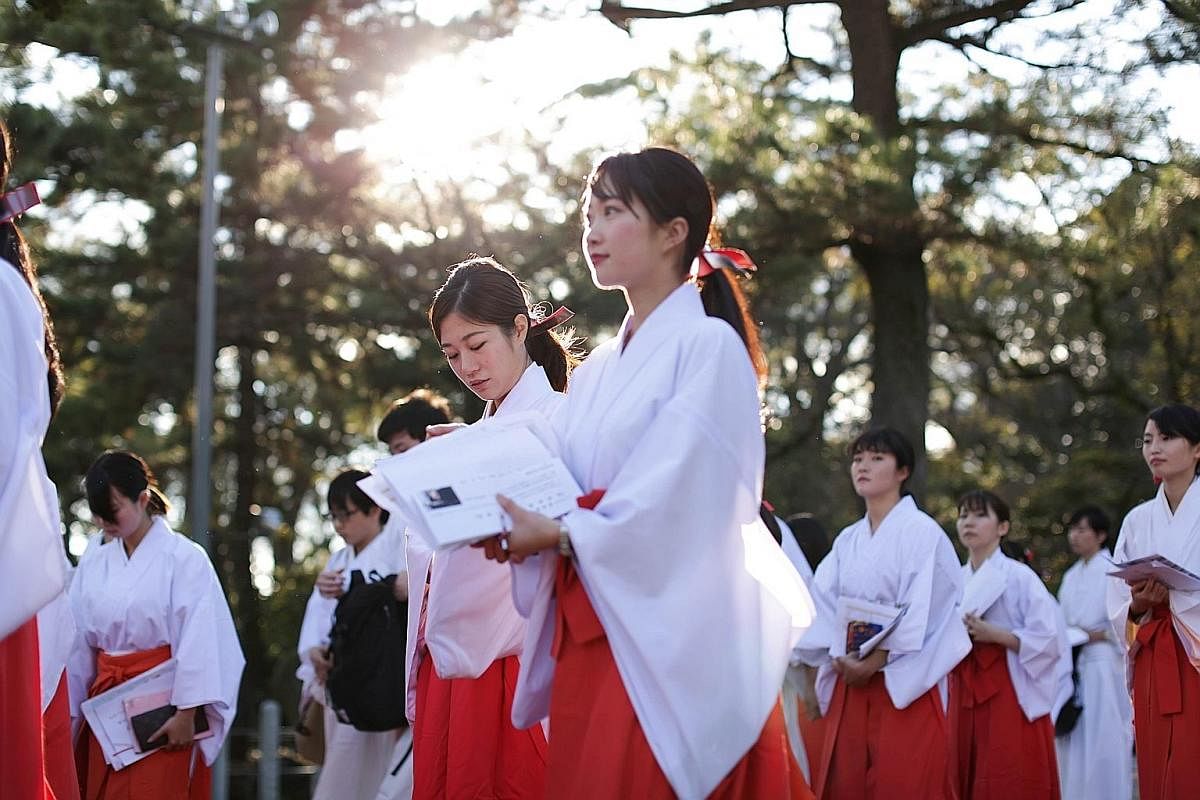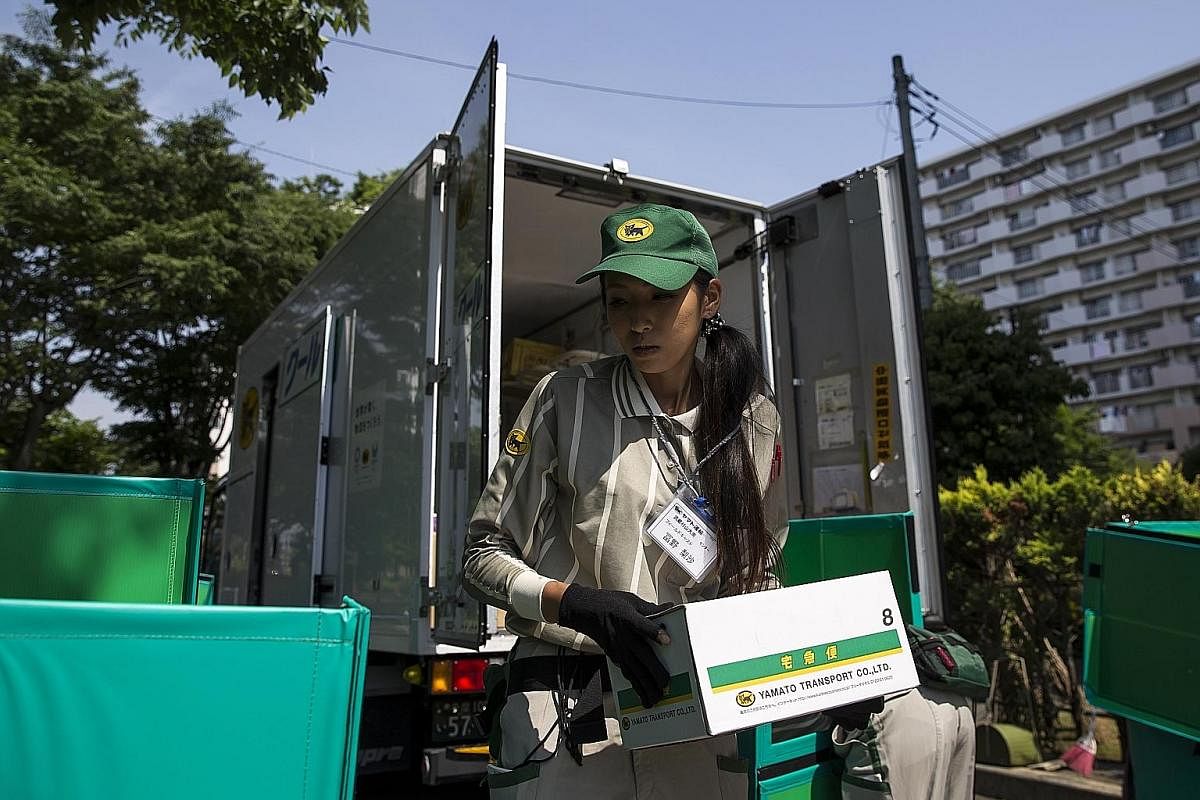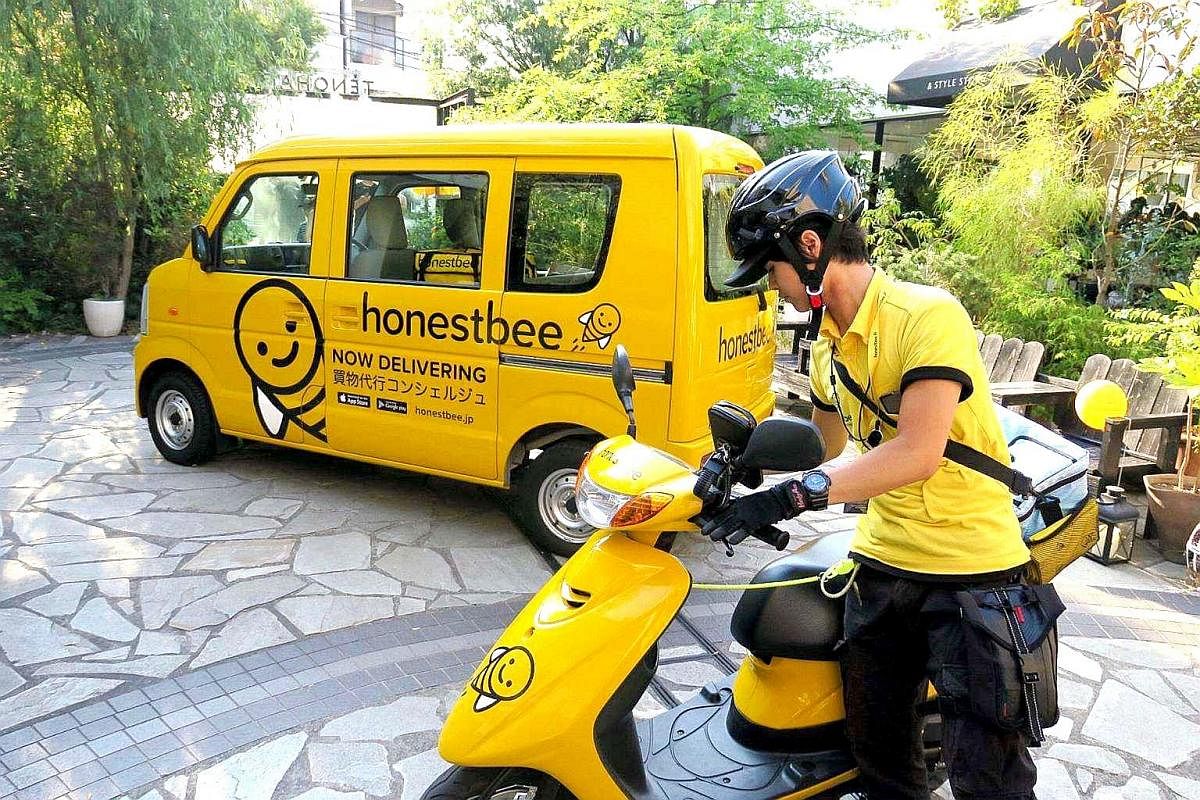-
WHAT IT COSTS
-
An apology via phone or mail: From 10,000 yen (S$120)
For an apology in person: From 20,000 yen
For divorce notice delivery with one witness: 3,000 yen
For divorce notice delivery with two witnesses: 5, 000 yen
For temple/shrine visit with prayers and collection of amulet: 5,800 yen (5,000 yen for the visit and 800 yen for the amulet)
Field notes
Yen for daikou
Side-job culture gains traction in Japan as anything from the quirky to the creative is game for outsourcing



What do you do if you're driving to a party but would like to have a tipple? In Japan, you call a daikou driver to take you home in your car.
Daikou means "replacement" or "outsourcing", and these drivers usually hang around popular pubbing or clubbing areas to offer their services.The peak demand times for replacement drivers - late at night and especially on Friday and weekend nights - have made it a popular moonlighting option for salarymen looking to earn some extra pocket money. If they worked for a daikou driver service provider, they could earn between 1,000 yen and 1,500 yen (S$12 to S$18) an hour on their shift.
In recent years, this service has grown more popular, partly because of the proliferation of smartphone applications that link daikou drivers with users.
Mr Kenji Miyake, 28, who works as a salesman for a printing firm, has been daikou driving on the side for six months. "The tips you get from your usually drunk client if you get along with them well are a welcome bonus, and sometimes I make some handy contacts," he said.
The daikou market has flourished in recent years, with a growing range of tasks being outsourced and more people offering their labour via apps or online platforms.
Nowadays, anything is up for daikou. From the surprising - paying respects at a relative's grave, going on pilgrimage, apologising to someone you've offended, prison visits - to the mundane, such as dog-walking, doing housework, queueing up for a popular restaurant, securing a prime spot for cherry-blossom viewing.
"Long working hours leading to a lack of personal time and the stress of double-income families has fuelled demand for daikou services, while job insecurity, a slow rise in pay and a lack of job satisfaction have made the idea of having a side job more common," said Dr Natsuko Hagiwara, a sociology professor at Rikkyo University.
-
75% Of 1,600 workers aged 25 to 39 surveyed were interested in taking on part-time jobs.
80% Of those interested in taking on sidelines worked for large conglomerates.
A survey of 1,600 workers aged 25 to 39 conducted this year by One Japan, an organisation that aims to promote corporate work-style innovation, found three out of four employees interested in a side job. Among them, 80 per cent were working for major conglomerates with a staff size of over 10,000, such as manufacturers and banks.
Respondents said their reasons for moonlighting include a desire to hone their skills, increase their take-home income, widen their network and a disillusionment in employment for life at large corporations. In recent years, major conglomerates from Sony and Sharp to Toshiba have found themselves in turmoil, shaking the belief that there is job security in working for a big organisation.
"Another reason is a longer life expectancy, leading to a need to have some form of employment after retirement," said Dr Hagiwara.
NO MORE CHORES
Riding the daikou trend is Singapore-based online concierge and delivery service firm Honestbee, which has been helping people in Japan do their grocery shopping and delivering it to their doorsteps since July. It charges a concierge fee of 490 yen and delivery fee of 490 yen, but waives the delivery fee for purchases above a certain value depending on the store.
Signing up as a worker "bee" is a popular option especially among housewives, students, freelancers and young workers looking to make some spare cash. They have to work at least two hours a day. Compensation depends on their experience and the number of hours they work.
"Traditionally, having house help or house managers is not common in Japan. The introduction of a service that offers personalised shopping and delivery also helps address time management and logistic difficulties faced by many Japanese people," said Mr Vivek Sampath, Honestbee's country manager for Japan.
He added: "The grocery and food delivery industries in Japan have been experiencing noticeable growth in recent years as the busy Japanese prefers to spend less time grocery shopping due to demanding work schedules, raising children and other commitments."
Japan's Ministry of Health, Labour and Welfare has put the size of the household-chores daikou market at 100 billion yen in 2012 and expects the market to grow six times in the coming years.
Daikou jobs are popular with people looking for a flexible side job.
Facilitating this trend are firms such as Lancers, which launched in April an "open-talent platform" application called Pook, where people sign up to offer skills from cooking, assembling furniture, babysitting, sports coaching and event organising to offering advice or a listening ear, at their desired rate.
It also has an online platform called Lancers for more skilled freelancing jobs, from editing and website design to app creation. "The idea is to help create a society where anyone can find work they want to do anytime and anywhere through the online network," said a spokesman for the company.
One Pook user is daycare centre worker Satoshi Obara, 33, who has just had his first child, and cleans homes during the weekends to earn some extra income. He earns 5,000 yen for two hours of cleaning.
Ms Yumiko Oki, 28, a graphics designer who is a contract employee with an online gaming company, has also signed up with Lancers.
"The extra income is welcome and I get to build my portfolio," she said, admitting that her company is not aware of her sideline job. "It's quite common for people in my industry to do freelance projects."
Acknowledging that more flexible working options are needed for a labour-tight Japanese economy, the government has even encouraged large corporations to allow their employees to take on side jobs.
For example, Yahoo Japan allows its staff to telecommute and is considering introducing a three-day weekend as part of an effort to encourage taking up side jobs. Around 10 per cent of its staff of 5,800 have a side job, usually involving the use of their information technology skills.
One mid-sized IT solutions firm, Cybozu, has allowed its workforce of around 350 to have a side job since 2012, and has cut its job turnover rate from a high of 28 per cent in 2005 to an average of 5 per cent over the past three years.
Some of the side jobs its staff are holding down include being a cameraman, YouTuber, writer and running a curry restaurant.
"Any side job is allowed as long as there is no conflict of interest or abuse of resources, and they keep colleagues posted of their schedule and availability," said Cybozu spokesman Hiroshi Sugiyama.
Another IT solutions firm, enfactory, which employs more than 30 people, also encourages the staff to take on a side job, or what it calls "parallel work".
One employee, Mr Tomoya Takani, is a disaster prevention goods and business continuity plan adviser in addition to being an IT engineer.
"My qualification in disaster prevention and business continuity helps to open doors and get business contacts for my main job as well, so I find a synergy in this way of working," said Mr Takani.
Dr Hagiwara said: "Having multiple footholds is a risk-management practice now that Japan's lifetime employment system has collapsed.
"Environments that enable people to pursue multiple careers need to be created with the involvement of companies and the government. This is something all economies will need to address at some point."
Passing the buck
Not all daikou jobs are a dog-walk in the park. Some tasks require more skills than others.
Those working for a daikou apology service, for example, need a certain degree of training and experience to be tactful enough for the task so as not to aggravate the situation.
Housewife Sayaka Kobayashi, in her 40s, works part-time for such a service. She once acted as the wife of a man who had committed adultery with a married woman. The husband found out, and wanted the man to take along his own wife and apologise face to face.
After she said she was sorry for not having noticed her "husband's" infidelity because of her home and childcare duties, the wronged husband took pity on her and did not demand monetary compensation.
Equally, for divorce notice delivery services, some familiarity is needed with the process of acting as a witness to the delivery of notice.
"Demand for our services has been rising steadily," said a spokesman for Rikontodoke, which literally means divorce notice delivery. He added: "People in a divorce prefer to minimise contact with the spouse."
Other offbeat daikou jobs are more pleasant, such as praying at a temple or getting an amulet on someone's behalf.
"In the Edo era, dogs were trained to make pilgrimages on their master's behalf, so the concept of outsourcing temple or shrine visits isn't that new to the Japanese," said Ms Yoshimi Kanda, who runs temple and shrine visitation service Omairidaiko.
"It is accepted as legitimate if the believer isn't able to make the trip in person, either for health reasons or because of a lack of time," she said.
Join ST's Telegram channel and get the latest breaking news delivered to you.
A version of this article appeared in the print edition of The Straits Times on September 23, 2017, with the headline Yen for daikou. Subscribe
